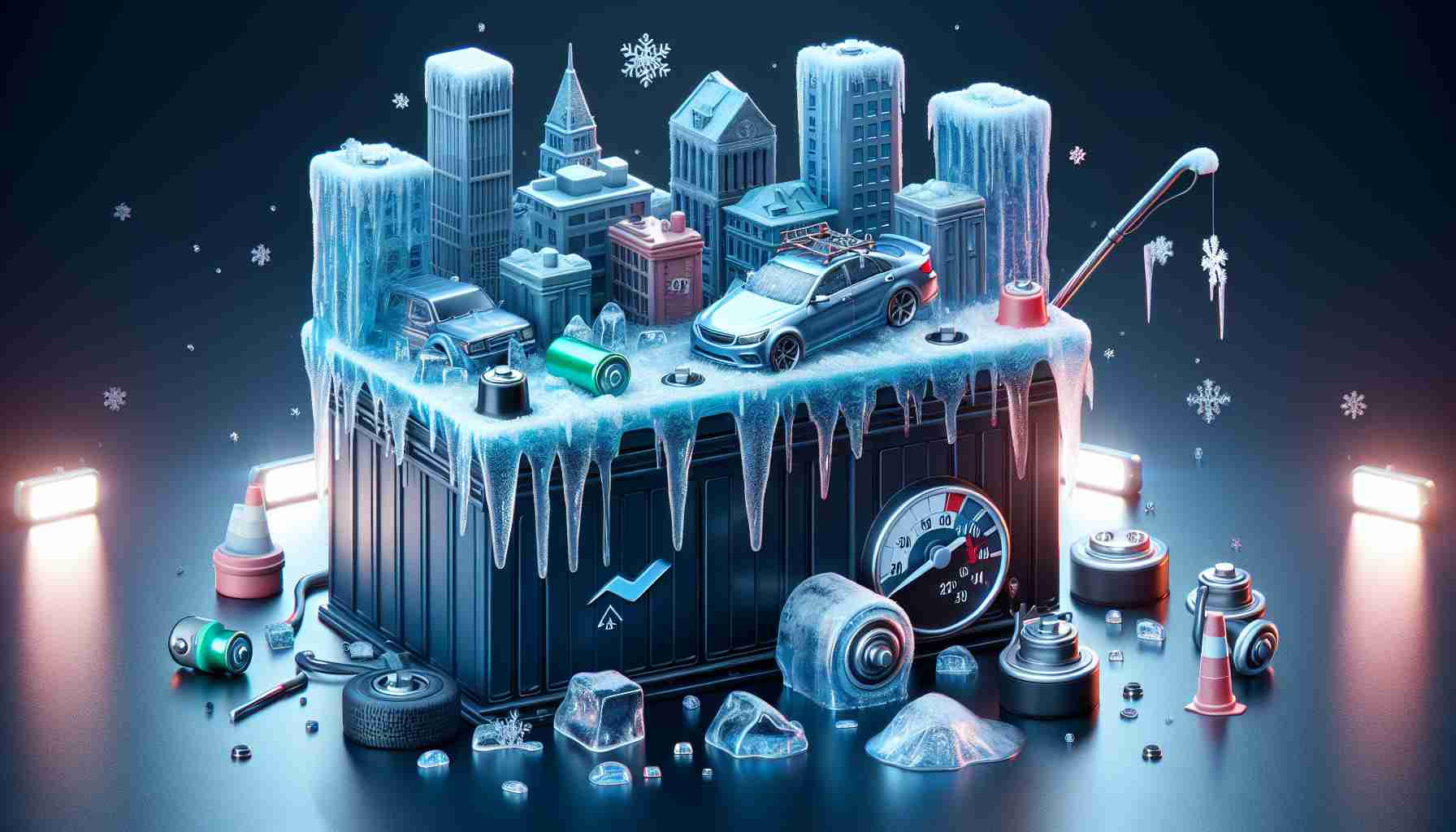When the cold weather strikes, car owners across the United Kingdom should prepare for the challenges that come with winter conditions. One of the key components of a vehicle that is affected by cold weather is the car battery. In this technical article, we will delve into the scientific structure that explains how low temperature affects car batteries. Understanding these processes will enable car owners to take preventive measures to maintain battery health and ensure vehicle reliability during harsh winter months.
Chemical reactions at low temperatures:
Car batteries rely on chemical reactions to generate electrical energy. In colder conditions, these chemical reactions significantly slow down due to the reduced mobility of ions in the battery electrolyte. As a result, the ability of batteries to accept or deliver sufficient current decreases, leading to a decreased overall performance.
Decreased cranking power:
One of the most noticeable effects of low temperatures on car batteries is a reduction in cranking power during engine startup. Cold temperatures increase the internal resistance of the battery, making it difficult to supply the necessary power to start the engine. This can result in slow cranking or, in severe cases, an inability to start the engine, leaving the vehicle stranded in the cold. When the ambient temperature is a comfortable 25°C, a fully charged battery has about 100% of the power available for engine cranking. As the temperature drops to 9°C, a fully charged battery has approximately 66% of the power available for engine cranking. At -20°C, a fully charged battery has around 40% of the power available for engine cranking.
Energy drain from the use of additional accessories:
During winter weather, drivers tend to use car accessories such as heating, defrosters, or heated seats more frequently. The use of these electrical devices puts additional strain on the car battery, resulting in faster discharge. If the battery is not properly charged, it may become unable to power essential vehicle systems, leading to malfunctions or complete failure.
Freezing of electrolyte in the battery:
Prolonged exposure to low temperatures can cause the electrolyte in the battery to freeze. The formation of ice can cause the electrolyte to expand, potentially leading to internal component damage. Once a battery is damaged, it will never hold a charge again and will require replacement. At a 40% charge, the electrolyte freezes at -8°C. If the battery is fully charged, the electrolyte freezes at 33°C.
Sulfation:
Low temperatures actually slow down the sulfation process in the battery, but increased use of heaters, lights, etc. may mean the battery is not fully charged, which can lead to sulfation. Sulfate crystals can gradually reduce the battery’s capacity and hinder the recharging process. If left unresolved, sulfation can cause permanent damage, necessitating battery replacement.
CTEK’s CS ONE can be a savior during the winter months. CS ONE features APTO™ technology, which automatically identifies the battery type and initiates a customized charging program without the need for manual intervention. Simply connect the CS ONE to any 12V battery and let it do the rest. Forget about buttons, modes, or concerns about polarity – non-polarized cables eliminate guesswork, ensuring you never make a wrong connection. What’s more, these cables are spark-free, providing peace of mind even in case of accidental contact. It also utilizes temperature compensation, allowing for safe use in any conditions.
Winter weather can be particularly harsh on car batteries, affecting their capacity, cranking power, and overall performance. By understanding these effects and taking appropriate preventive measures, car owners can protect their batteries and ensure vehicle reliability throughout the winter months. Regular inspections and proactive actions are essential to tackle the challenges posed by freezing temperatures, providing a smooth driving experience and peace of mind during the winter season.
For more information on choosing CTEK chargers and support units, click here.
FAQs about car batteries in winter conditions:
1. How does low temperature affect car batteries?
– In colder conditions, chemical reactions in the battery slow down, reducing its performance and ability to deliver current.
2. How does low temperature affect battery cranking power?
– Low temperatures increase the internal resistance of the battery, making it difficult to deliver sufficient power to start the engine. This can result in slow or impossible engine startup.
3. Can using additional car accessories affect the battery?
– Yes, using electrical devices like heating, defrosters, or heated seats can strain the battery and accelerate its discharge.
4. Can low temperature cause electrolyte freezing in the battery?
– Prolonged exposure to low temperatures can lead to electrolyte freezing in the battery, potentially causing internal damage and complete loss of function.
5. How can low temperature affect the sulfation process in the battery?
– Low temperature slows down the sulfation process, but if the battery is not fully charged due to increased use of other devices, sulfation can occur, resulting in permanent damage.
Key term definitions:
– Car battery: A device that stores electrical energy and delivers it to various vehicle systems.
– Cranking power: The maximum amount of electrical energy a battery can deliver to start a vehicle’s engine.
– Electrolyte: The fluid in the battery, containing chemical substances needed for the chemical reactions that generate electrical energy.
– Sulfation: The process of sulfate crystal formation on battery electrodes, reducing its capacity and performance.
Related links:
– ctek.com
The source of the article is from the blog lokale-komercyjne.pl
